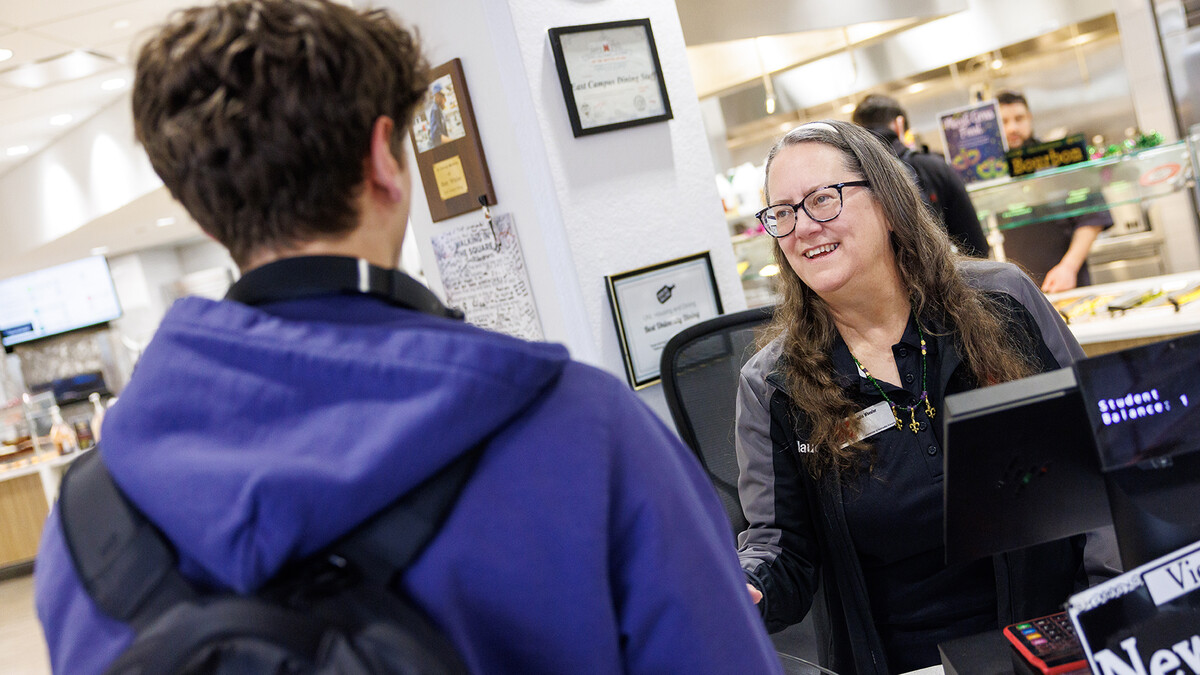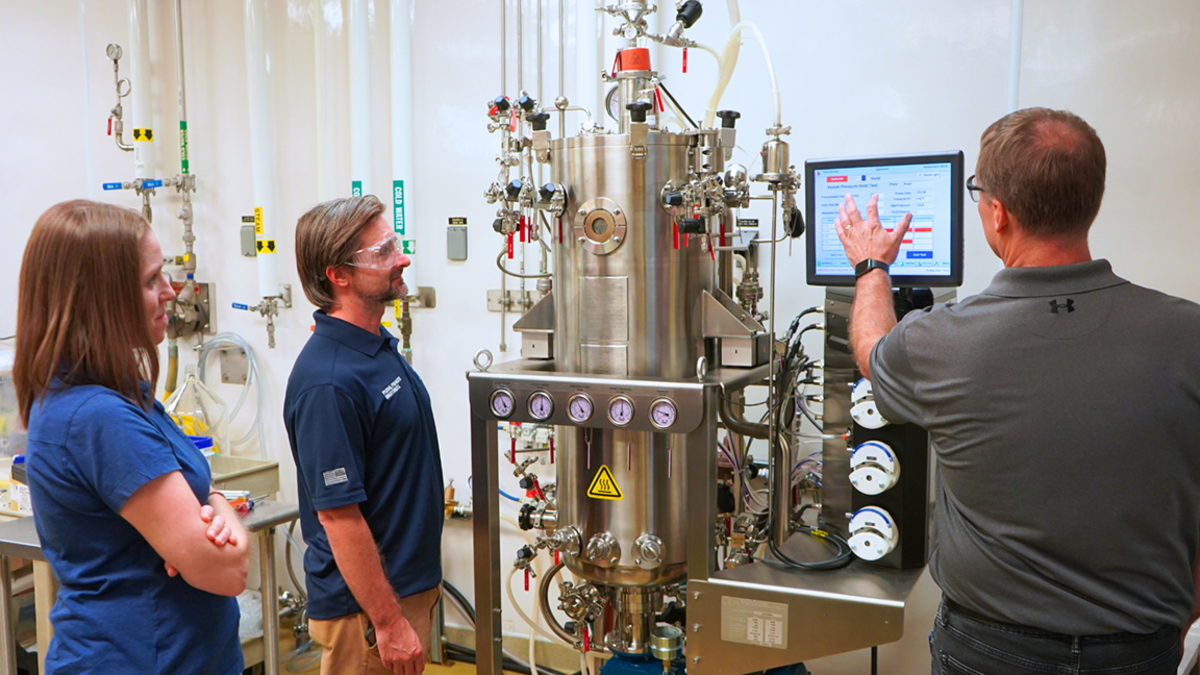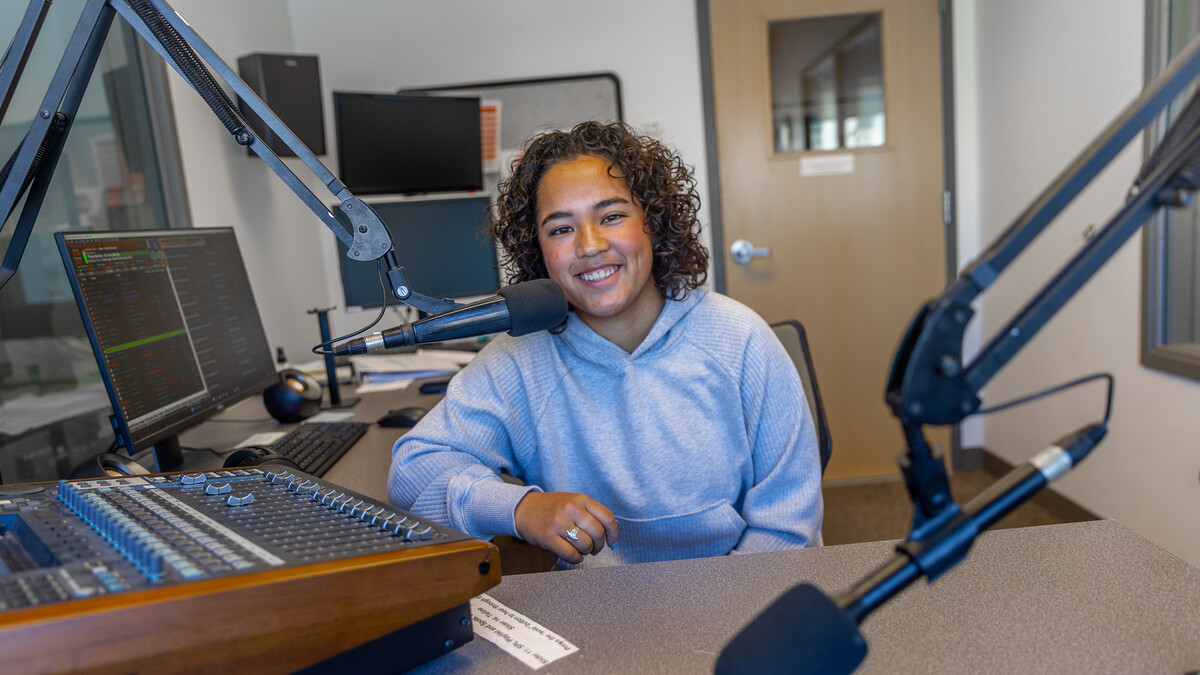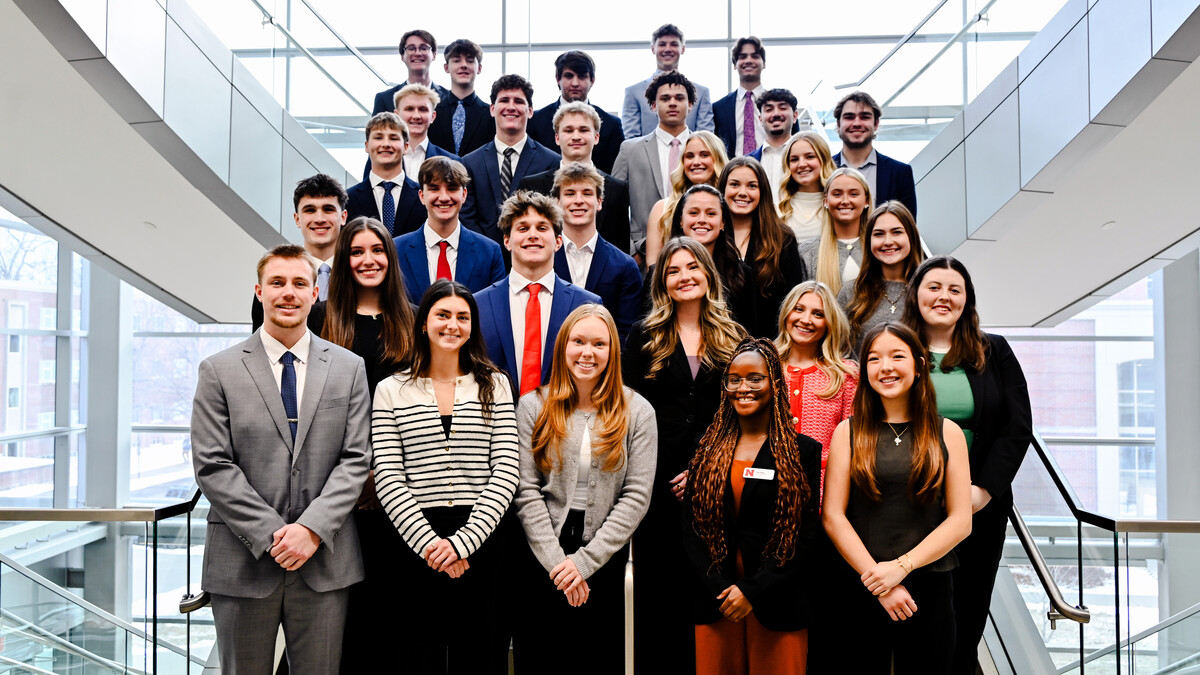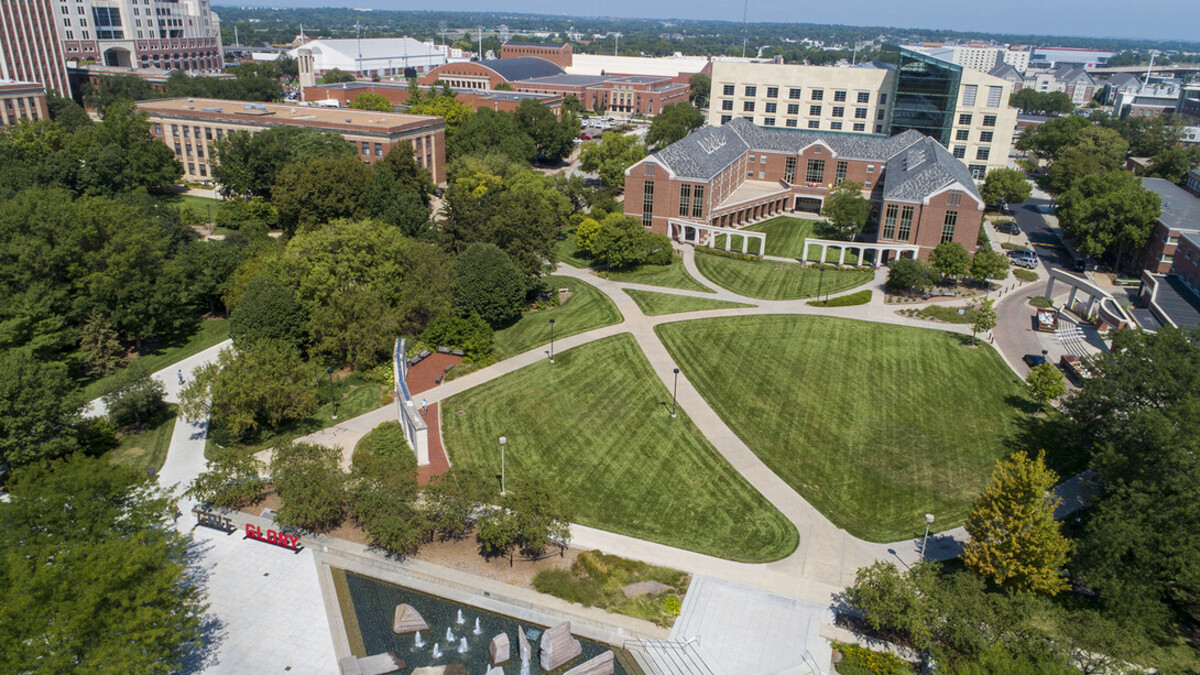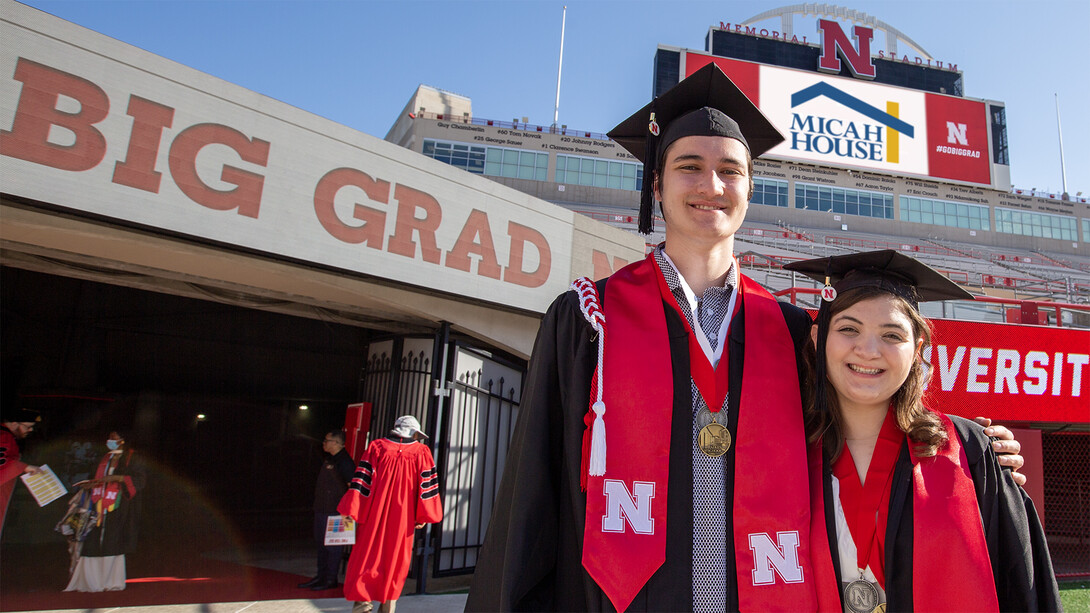
A capstone project led by Nebraska’s Trinity Mozingo and Max Radlicz has elevated a local nonprofit from carbon copies and clipboards to touchscreens and online databases.
Through the Design Studio in the University of Nebraska–Lincoln’s Jeffrey S. Raikes School of Computer Science and Management, the duo guided a student team in the development of software to handle tracking of all donations for MICAH House.
“This is an incredible nonprofit that provides shelter and support for around 50 women and their families in Omaha and Council Bluffs,” Mozingo said. “It was a perfect opportunity for us to focus on using what we’ve learned in the Raikes School to give back to others.”
Through the Raikes School’s Design studio, student teams use lessons learned in four semesters of hands-on learning to fully-develop software solutions that solve real-world problems. Much of the work is for businesses that support the students’ work. Regularly, a nonprofit project is offered and supported by a private donor — in recent years, that support has come from the Lincoln-based Spreetail Foundation.
“The work for MICAH House felt a little more motivating than doing it for some random company,” Radlicz said. “We knew we were working for something that would continue to make an impact beyond the classroom.”
In initial meetings with MICAH House staff, the Raikes School team learned that volunteers used paper forms to record all donations. These forms — entered on clipboards using carbon paper to produce extra copies — were then gathered and manually typed into an Excel document by other MICAH House volunteers.
“At the end of the year, they would take all of the data and use it to apply for grants, internal audits and run reports for donors,” Radlicz said. “There was lots of repetition for the volunteers, writing or typing the same data over again and again. We instantly knew that we could develop a simple, straightforward solution that would save them an incredible amount of time.”
The team landed on developing a website that allows volunteers to login and record all donations electronically. The system tracks donations, from food and clothing items to all categories of household goods, individually by donor name (an anonymous option is available for those who do not wish to share information), generates receipts automatically, creates a digital database of items on hand (allowing volunteers to put out a specific call if there is a dire need), offers a “heat map” to tracks donation types and trends by month, and generates electronic spreadsheets to support all annual reports and grant applications.
The team even developed the system so it matches the blue and yellow color scheme of MICAH House.
“We have a very small staff at MICAH House so having this app will significantly decrease the amount of time we spend on data analysis,” said Maren Larsen, philanthropy director for the nonprofit. “We are able to see in real-time our total donations, number of donors and other information that we would typically have to analyze each month.”
The MICAH House team has started to integrate the system into their day-to-day work — a process made easier through a private donation of two electronic tablets to the Raikes School team.
“The tablets just showed up over winter break,” Radlicz said. “We have no idea where they came from. But we were grateful for them because MICAH House didn’t have any sort of computer or table that could run the website from their donation center.”
MICAH House is now in the early stages of melding the data tracking system into their day-to-day activities.
“We’re excited because Spreetail has agreed to continue to support MICAH House’s use of this system for at least the next two years,” Mozingo said. “It’s great to see them starting to use our software — but it’s even better knowing that help is available so that our work will continue to make a positive impact on this organization.
“This was an nice opportunity to finish my degree in a way that gives back to a community in need.”
After graduating from UNL on May 18, the duo is moving on to their careers — starting for Mozingo as a product manager with Medtronic, a biomedical device manufacturer in the Twin Cities; and for Radlicz as a development manager for Xage Security, a cybersecurity company based in Palo Alto, California.
“This project was a perfect combination of the skills we developed through the Raikes School and our mutual volunteer work on campus,” Radlicz said. “It really fueled our passion to complete work that would benefit a nonprofit for years to come.”
